Dental implants are synthetic teeth that replace your missing natural teeth. Placing a dental implant is the best solution for replacing your missing teeth. Each year, millions of people are replacing some or all of their missing teeth with dental implants. Dental implant technology has been around since the 1960s. Over the decades, dental implants have become simpler and more affordable. So why are dental implants so popular? It turns out, there are countless benefits to using dental implants to replace your missing teeth. These benefits go far beyond simply having your missing teeth back. Let's take a look at the top ten benefits of dental implants to understand how valuable implants are:
1. Preserve your jawbone

Losing your teeth causes your jawbone to shrink at an accelerated rate
Perhaps the most important function of dental implants is to preserve your jawbone. Ever noticed how toothless individuals have a shrunken appearance? This is the result of jaw resorption subsequent to losing teeth. Your teeth are essential to preserving your valuable jawbone. Once you lose a tooth, your jawbone starts to shrink at an accelerated rate. When it comes to jawbone preservation, dental implants work exactly as natural teeth do. By placing dental implants you prevent jawbone atrophy which preserves your jawbone structure. In contrast, bridges and dentures do nothing to preserve your jawbone.
2. Chew more efficiently
Losing teeth, even if it's just one tooth, can adversely affect your chewing ability. You need a minimum of three teeth on each side of your mouth to chew comfortably. Anything less will significantly diminish your chewing capability. Missing teeth make it difficult to eat hard foods such as steaks, raw vegetables, and nuts. This leads to digestive issues, stomach problems, and even malnutrition. Placing dental implants restores your chewing ability. Dental implants provide 100% chewing efficiency, similar to that of natural teeth. In contrast, denture teeth offer between 20 to 40% chewing efficiency as compared to natural teeth. Bridges have decent chewing ability, however, they exponentially increase the forces exerted onto the supporting teeth. This increases the likelihood of the supporting teeth breaking which leads to a whole bunch of problems down the line.
3. Be more confident
Your smile is the first thing that others notice about you. Missing teeth create an undesirable gap that may be quite noticeable. Missing a front tooth can have a huge impact on your self-confidence and social perception. Placing dental implants closes these gaps to restore your beautiful smile and regain your confidence.
4. Prevent teeth crowding
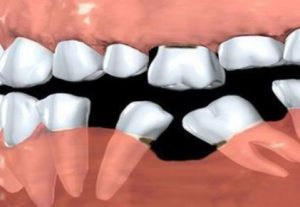
Losing even a single tooth can cause your remaining teeth to shift
Losing teeth, even if it's just one tooth, can screw up your bite relationship. Teeth have a tendency to shift into gaps close to them. Whenever you lose a tooth, your remaining teeth slowly drift into this newly created gap. As a result, losing just one tooth causes every tooth on that side of your mouth to shift. Sometimes this drifting is so bad that it screws up your entire bite. Dental implants close missing gaps to prevent teeth from shifting, thus protecting your bite.
5. Protect your remaining teeth
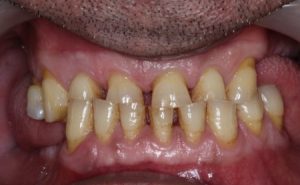
The more teeth you lose, the more damage you exert onto your remaining teeth sustain
The average person chews some 250,000 times a year. Guess what happens when you start to lose teeth? Losing teeth cause you to place significantly more stress on the remaining teeth. The more teeth you lose, the more stress you placed on these remaining teeth. For example, missing three to four posterior teeth nearly doubles the stress on your remaining teeth. This added stress can damage your remaining teeth, causing them to break, crack, and fail. Replacing your missing teeth with dental implants protects your remaining teeth by absorbing your bite forces. Unfortunately, dentures don't absorb much of your bite pressure and do very little to relieve the biting stress. This explains why denture wearers continue to lose more and more teeth over the years.
6. Protect your temporomandibular joint (TMJ)
The stress caused by losing teeth goes beyond your teeth. This added stress is transferred to your jaws, and from there it spreads to the joints, known as the Temporomandibular Joint (TMJ). TMJ stress leads to headaches, migraines, and tension pain in the head and neck region. In the same way that orthodontic treatment corrects your bite and reduces tension pain, dental implants restore your bite to eliminate and/or reduce head and neck discomfort.
7. Definitive results
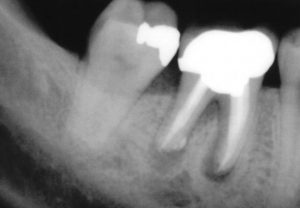
Root canal-treated teeth sometimes remain infected for years without showing any visible symptoms
Twenty years ago dentists would encourage you to save your tooth no matter the cost. Root canal treatment was much more common. Other surgeries, such as root canal retreatment, apicoectomy surgery, hemisection, and other complicated procedures were routinely attempted to salvage teeth with poor prognosis. However, most of these procedures only earn you a few additional months, or a year or two, and your tooth would fail sooner or later. What's the point of spending thousands of dollars to hang on to a tooth that you're going to lose anyway? Even worse, most of these hopeless teeth continue to remain infected even after treatment. This means the infection remains in your mouth and spreads to the rest of the body. Dental implants changed everything and solved all of these problems. This is because dental implants offer an excellent way to replace your missing teeth with a 98 to 99% success rate. Implant treatment removes your infected tooth and replaces it with a synthetic tooth that does not develop cavities. This means that there are no more questions about whether your tooth is infected or not. Removing the infected tooth allows your body to rid itself of infection and start the healing process.
8. Improve your overall well-being
Even physicians are starting to catch up with the benefits of dental implants. Nowadays, many dental implant treatments are the result of physician referrals. Multiple medical problems can be traced back to missing teeth or infected teeth. For example, broken teeth can become abscessed and drain pus into your bloodstream and sinuses. This could be detrimental to your overall health. Here are a few examples of how your teeth can negatively affect your well-being:
- Patients with heart conditions must be very careful with leaving infected teeth in their mouths as the infection can transfer to their heart valves
- Infected teeth can potentially harm your artificial hips, titanium joints, or artificial heart valves
- Missing teeth impact your digestion which may lead to gastrointestinal problems, stomach issues, and other nutritional deficiencies
- Diabetics are especially susceptible to complications from oral infection and should avoid leaving infected teeth in their mouths at all costs
- Those with persistent sinus issues, headaches, and undiagnosed head and neck complications may notice significant improvement after replacing their missing teeth with dental implants
As you can see, there are countless medical conditions tied to missing and infected teeth. Therefore, dental implants not only restore your oral health, but they can also alleviate multiple medical issues that you are facing.
9. Less wrinkles
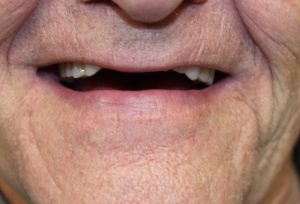
Losing teeth cause you to develop more wrinkles
The final benefit of dental implants that we're going to discuss is the preservation of your facial muscles. Ever noticed how toothless individuals develop plenty of wrinkles and look older than they really are? This is because your facial muscles lose their support once you lose your teeth. With no teeth to hold your cheeks and lips in their proper position, your muscles weaken and you develop more wrinkles. Dental implants maintain your facial muscles in their natural position. This prevents your cheeks and lips from shrinking and collapsing. Again, wearing dentures does little to prevent facial muscle collapse which leads to additional wrinkling of the facial muscles.
10. Better speech
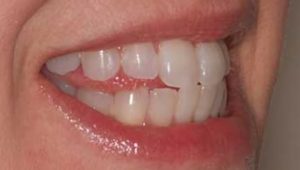
Sounds like "S", "F", "TH" rely on your front teeth coming proximal to one another
You need to have teeth to properly pronounce certain words. Sounds like "s", "f", "th" rely on the front teeth coming proximal to one another. Missing teeth, especially the front ones, can interfere with your speech. Dentures may help with your pronunciation a bit, but they're not nearly as effective at restoring your speech using dental implants.
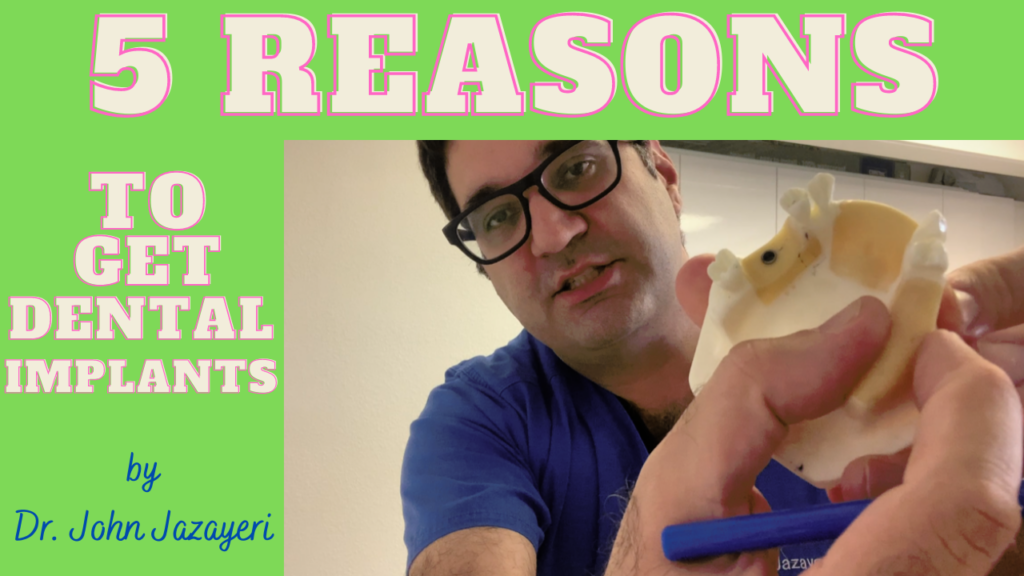
0 Comments